#The Hague Netherlands
Explore tagged Tumblr posts
Text
youtube
Video to 2024 Spanish-language single "Invisible" by The Hague, Netherlands-based darkwave and post-punk duo Lifeless Past, presented here by Yami Spechie
#darkwave#post punk#gothwave#goth duo#Lifeless Past#Invisible#singles#music#2024#The Hague Netherlands#Dutch goth#goth en español#Yami Spechie#music video#2020s goth#goths of color#poc goth#moc goth#Black goth#Youtube
3 notes
·
View notes
Text
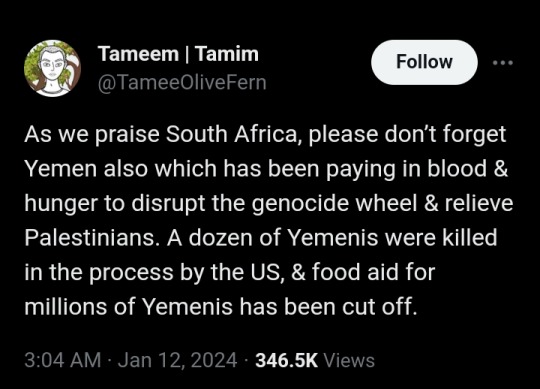
Thank you Yemen 🇾🇪
Despite being one of the poorest countries in the world, they showed more empathy than those so-called civilized developed countries.
#🇵🇸❤️🇾🇪#yemen#palestine#free gaza#free palestine#gaza#palestine resources#social justice#gaza genocide#gaza strip#imperialism#israel is a terrorist state#us politics#world politics#south africa#netherlands#the hague#international court of justice#ICJ
28K notes
·
View notes
Text
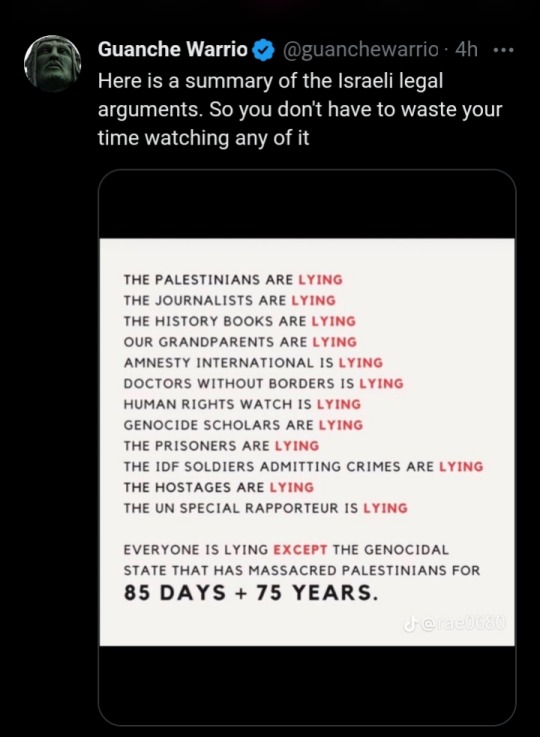
Yup
#palestine#free palestine#free gaza#gaza#save palestine#israel is a terrorist state#genocide#keep talking about palestine#palestine resources#social justice#icj hearing#the hague#netherlands#twitter#international court of justice
3K notes
·
View notes
Text
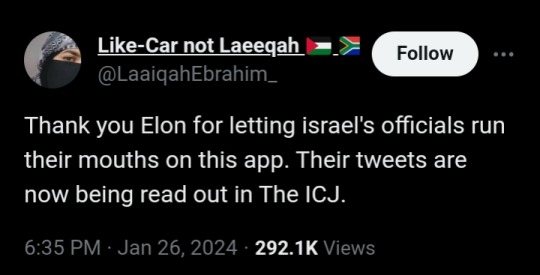
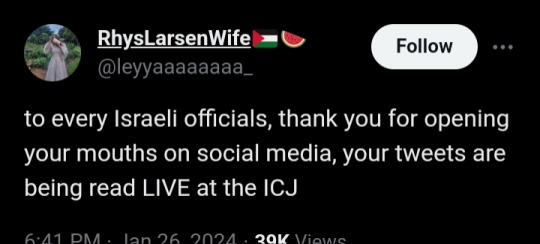
They showed their own colors
#gaza#palestine#free palestine#colonialism#free gaza#genocide#imperialism#israel is a terrorist state#keep talking about palestine#palestine resources#icj hearing#international court of justice#netherlands#the hague#south africa#jerusalem#human rights#al quds#yemen#twitter
3K notes
·
View notes
Text

Hague, Netherlands (by Rafael)
928 notes
·
View notes
Text
"The Hague made international headlines for being the first city in the world to approve legislation prohibiting marketing of fossil fuel-related products and services. This major ruling, issued earlier this month, seeks to limit the promotion of items with a high carbon footprint, such as gasoline, diesel, aviation, and cruise ships. The ban, which goes into effect at the start of next year, will affect both government and privately funded advertisements, including those on billboards and bus shelters throughout the Dutch metropolis.
This groundbreaking legislation establishes an important precedent in the global fight against climate change. Other cities have attempted to limit the reach of high-carbon items through council ordinances or voluntary agreements with advertising operators, but The Hague’s prohibition is the first that is legally binding. It is a major step forward for cities around the world that want to reduce carbon emissions and combat climate change head-on.
A response to global calls for action
The prohibition comes after UN Secretary-General António Guterres called earlier this year for countries and media outlets to take tougher action to combat fossil fuel advertising, citing parallels with existing tobacco advertising bans. Guterres stressed that, as with the tobacco industry in the past, fossil fuel businesses are contributing to a worldwide public health crisis—in this case, climate change. Governments can help change public behavior and prevent the normalization of high-carbon lifestyles by limiting their capacity to market.
Several cities have already made tiny moves in this direction. Edinburgh, for example, approved a council vote in May prohibiting fossil fuel-related ads in city-owned venues. The Scottish capital also prohibits enterprises that sell these products from sponsoring events or developing partnerships. However, unlike The Hague’s legislation, Edinburgh’s ban is voluntary and only applies to council spaces.
A legally binding first
The Hague’s new law is significant since it is legally binding. The restriction affects not only specific items, such as gasoline, diesel, and fossil fuel-powered vehicles but also businesses such as aviation and cruise ships. However, the rule exempts fossil fuel firms’ political advertising or efforts supporting a generic brand, allowing these businesses to keep prominence...
The impact of advertising on behavior
Advertising’s impact on consumer behavior is well-documented, and many experts say that fossil fuel marketing undercut climate legislation by encouraging unsustainable behavior. Thijs Bouman, an associate professor of environmental psychology at Rijksuniversiteit Groningen, stated that “fossil fuel advertising normalizes the use of high-carbon products and services, making it more difficult to change consumer habits.” ...
Catalyzing change worldwide
The Hague’s move may have repercussions beyond its borders, spurring similar actions in other cities around the globe. Cities such as Toronto, Canada, and Graz, Austria, are already launching campaigns to outlaw advertising for fossil fuels. In the Netherlands, both Amsterdam and Haarlem have outlawed marketing for climate-damaging products like beef, but these measures have yet to become legislation.
Sleegers believes that The Hague’s move will act as a spur for other towns to follow suit. “More cities have a wish to implement the fossil ad ban through ordinance, but they were all waiting for some other city to go first. The Hague is this city,” she said, predicting that more local governments will now feel empowered to act...
As the world grapples with the rising costs of climate change, The Hague’s pioneering move provides a potential model for other cities looking to minimize their carbon footprints. With cities like Toronto and Amsterdam keeping a careful eye on things, this legislation has the potential to start a global campaign to prohibit fossil fuel advertising.
More cities may follow suit in the coming years, hastening the transition to a more environmentally friendly and sustainable future."
-via The Optimist Daily, September 26, 2024
#fossil fuels#climate change#climate news#pollution#carbon emissions#the hague#netherlands#europe#advertising#climate action#good news#hope
371 notes
·
View notes
Text
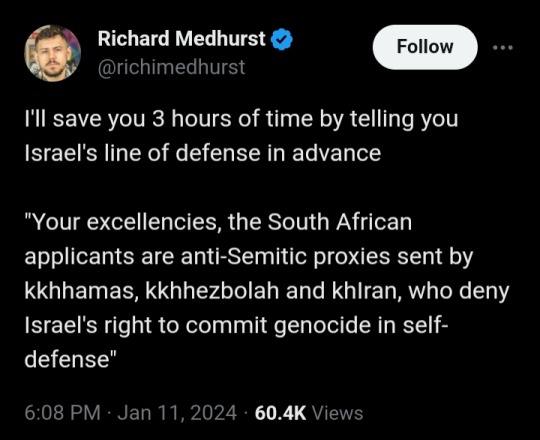
Tomorrow's hearing will be filled with delusion, denial, clownery that's for sure.
And of course kkkkkhamas
#palestine#I'm wheezing at khiran#south africa#ireland#the hague#netherlands#ICJ#international court of justice#peace palace#free gaza#free palestine#gaza#palestine resources#social justice#gaza genocide#gaza strip#imperialism#israel is a terrorist state#yemen#twitter#January 11 hearing#January 12 hearing
1K notes
·
View notes
Text

For those who don't know, the ICJ is located in the Hague
#yemen#jerusalem#tel aviv#current events#palestine#free palestine#gaza#free gaza#news on gaza#palestine news#news update#war news#war on gaza#south africa#netherlands#icj#international court of justice#the hague
415 notes
·
View notes
Text
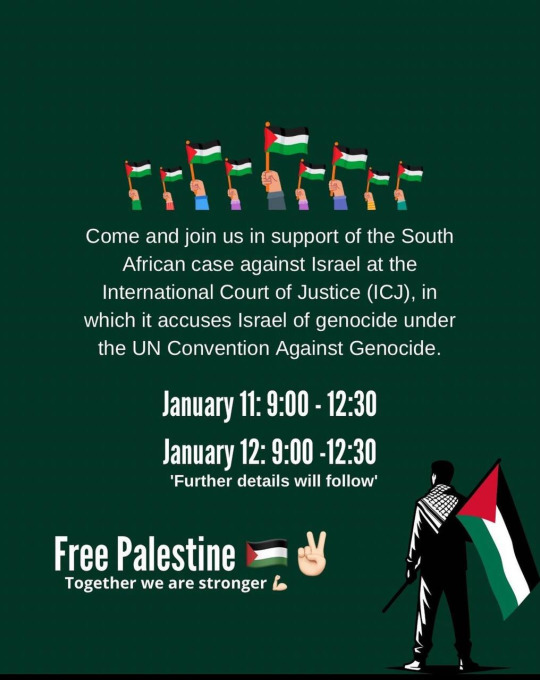
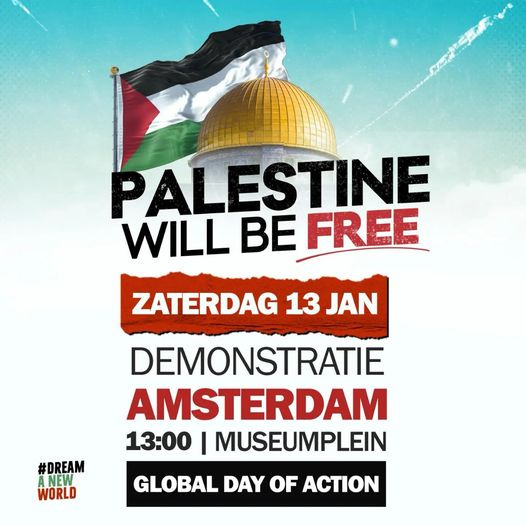
If you happen to be in the Netherlands: January 11 / 12, Den haag at the International Court of Justice January 13, Amsterdam
#free palestine#palestine#icj#genocide#international court of justice#netherlands#nederland#den haag#the hague#amsterdam#nederblr#solidarity#palestina
487 notes
·
View notes
Text
By David de Bruijn
Many are shocked, wondering how this could happen in the Netherlands.
To me, their bafflement is what’s shocking.
I grew up in The Hague, where real and abundant antisemitism, from epithets in the street to physical threats to the community’s safety, was part of our daily life. As a young boy, I vividly recall how The Hague's football hooligans—viciously opposed to Ajax, Amsterdam’s “Jewish” team—walked the streets under a banner reading “We’re hunting for Jews.” (Indeed, for my entire life, football stadiums in my home country have been filled with lurid chants like “Hamas, Hamas, all the Jews on gas!” and “My dad was in the commandos, my mom was in the SS, we like to burn Jews, because Jews burn the best.”)
In high school, second- or third-generation Moroccan kids would point and hiss “Psst, psst, that’s a Jew, that’s a Jew!” as they passed by on their bikes.
But most impactful were the myriad security measures our community had to undertake. Seen from the front, The Hague synagogue is not recognizable, two thick green doors presenting a closed facade to the street. Behind these doors are glass doors that open only once additional permission is given. All the windows are made of bulletproof glass. A permanent police post guards the synagogue. In Amsterdam, the Jewish primary school has even more dystopian levels of protection, hidden behind several layers of metal spikes and fencing. From the outside, the view of the school is entirely closed off. (Even as I write this, I feel uncomfortably conscious of not revealing any sensitive security details.)
Self-protection was a constant—and to me, natural—part of Jewish life. Leading youngsters to a summer camp in northern Friesland meant bringing a dedicated security team and, when possible, keeping quiet the fact that it was Jewish children gathering here.
Violent, antisemitic assaults have become increasingly regular occurrences. In May, a student at the University of Amsterdam, a young man, was assaulted by a protester in a keffiyeh, struck in the head with a wooden plank. In August, a statue of Anne Frank was defaced—for the second time—with anti-Israel graffiti. Today, walking around with a kippah in the Netherlands is an act that requires bravery.
As the situation worsened over the years—motivating some, including me, to move, others to adjust, and so many to worry—one of the most painful aspects was the way the Jewish community was gaslit. Dutch society repeatedly told its post-Holocaust Jewish remnant—and itself—that “never again” was not merely a concrete promise, but a core concept of modern Dutch morality. However, the dominant culture of the country’s immigrant communities has proven manifestly hostile to that worldview—and to Jews.
For the North Africans living in Holland, the dominant Jewish story of the twentieth century is not Auschwitz, it is Israel, which in their distorted conception is an illegitimate, one-directional criminal enterprise directed at an innocent population. Nor—and this is crucial—is this merely an attitude about a conflict. They believe it is the crime of the twentieth century, conferring ultimate guilt on the Jewish people. “Palestine” is a phrase felt to carry the gravity of “Holocaust,” grotesquely inverting the perception of the Jewish experience.
For Holland’s Jewry, this reality has been palpable for decades. Yet nothing—no politician, no policy—has altered this reality. In the aftermath of every single violent attack—as will most likely be the case now—the political answer has been a room-temperature broth of subsidies, youth centers, dialogue forums, visits to Islamic pensioners clubs, and interfaith dialogue.
So it did not surprise me when international media outlets, like The Associated Press and The New York Times, covered this widespread attack as if it was the unfortunate, but perhaps expected, result of the Israeli fans’ conduct before and during the match, such as reportedly taunting Ajax fans with inappropriate slogans. Further, the AP wrote, the attack followed a Palestinian flag being “torn down from a building in Amsterdam on Wednesday,” and the rioters were angry because “authorities banned a pro-Palestinian demonstration near the stadium.” The Times originally pinned the attack on differences over sport and on taunts, as “violence tied to a match between Dutch and Israeli teams,” and reported that “the tensions in the hours leading up to the violence” was in part caused by “one man [being heard] saying in Hebrew, ‘The people of Israel live,’ while others shout[ed] anti-Palestinian chants using expletives.” (The Times has apparently stealth-edited its reporting numerous times since publication.)
In other words, if all you read were the initial reports, you might think that the Israelis started it, or at least had it coming.
What the reporters and media fail to understand is that this was an attack on Israeli football fans, but not one carried out by football hooligans. The Ajax team is itself Jewish friendly—fans of Amsterdam’s Ajax are affectionately (and sometimes not-so affectionately) referred to as “super Jews,” and Ajax is understood as the “Jewish team,” so it would make little sense that Ajax supporters would attack Jews or Israelis for their ethnicity—even if they are fans of an opposing team.
No, this was straightforward: According to the accounts of witnesses and victims, it was an attack by immigrant, Muslim communities against Israelis and Jews.
103 notes
·
View notes
Text
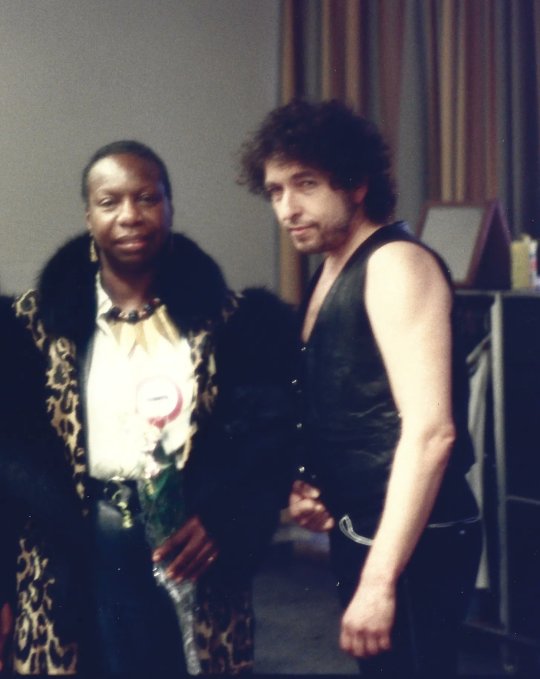
Nina Simone & Bob Dylan, The Hague, Netherlands, 1989 © Christina Svane.
277 notes
·
View notes
Text

Giethoorn, The Netherlands
photography by @zoedargue
https://zoedargue.com/
#giethoorn#echt#travel#green#nature#leaves#trees#canals#europe#road trip#The Netherlands#The Hague#Tourist Attraction#tourism#film aesthetic#aestrhetic#photo#photographer#original photography#photoart#my phoyography#queue#aesthetic#original#original photographers#original photographers on tumblr#Street Photography#dslr#artists#artist
79 notes
·
View notes
Text
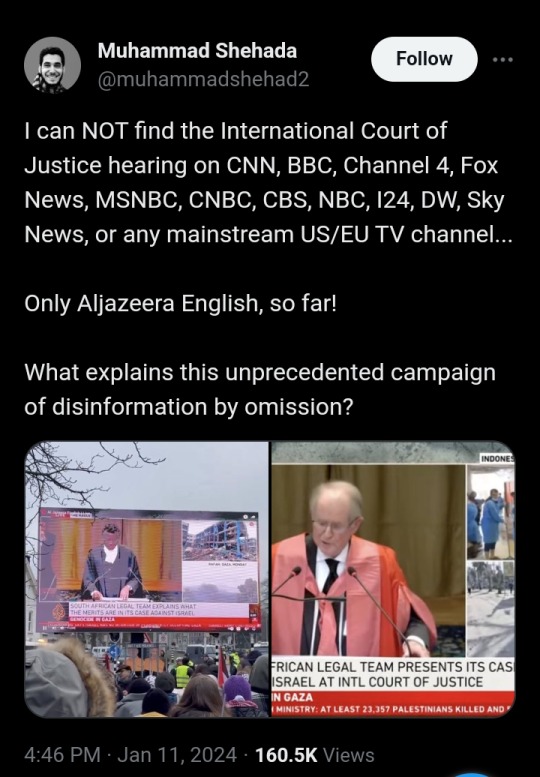
Of course those cowards won't show the truth.
Anyways you can go to this thread and find channels who are broadcasting it.
#free gaza#free palestine#gaza#palestine#palestine resources#social justice#gaza genocide#gaza strip#imperialism#israel is a terrorist state#ICJ#international court of justice#south africa#palestinian genocide#netherlands#the hague#twitter#January 11 hearing
20K notes
·
View notes
Text
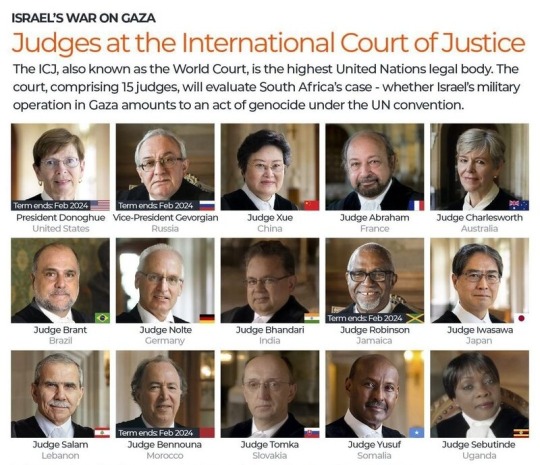
List of judges in the trail against I*rael. Hope justice prevails. I don't want history to be told by zionists clown. But this is ICJ... I'm keeping my hopes low.
Praying South Africa wins.
#south africa#palestine#free gaza#gaza genocide#international court of justice#netherlands#the hague#gaza strip#israel is a terrorist state#social justice#free palestine#imperialism#palestine resources#palestinian genocide#January 11 hearing
170 notes
·
View notes
Text

November 16, Den Haag - Demonstratie Tegen de Mars voor het Leven
#netherlands#nederland#antifa#antifascism#antifascist action#antifascisme#antifascistische actie#the hague#den haag#pro-choice#feminism
35 notes
·
View notes
Text

Skyline of The Hague - Wim Bettenhausen , 2007.
Dutch , b. 1942 -
Etching , 60 x 50 cm.
191 notes
·
View notes